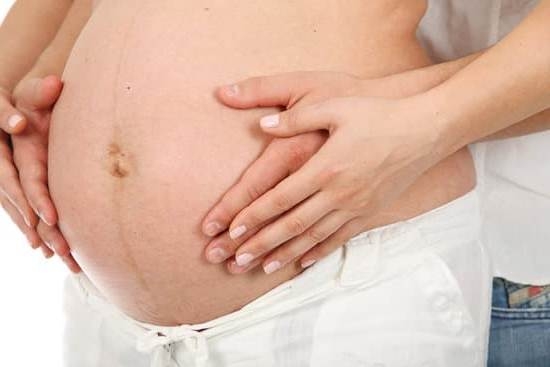Understanding the early stages of pregnancy is crucial for expectant mothers. Recognizing the symptoms of early pregnancy can help women to understand and prepare for the changes their bodies will undergo in the coming months. In this article, we will explore the various signs and symptoms that may indicate early pregnancy, from missed periods to mood swings, and provide tips for managing these symptoms.
The first few weeks of pregnancy can be a confusing time for many women as they may not even be aware they are pregnant yet. However, being able to recognize the symptoms of early pregnancy is important as it allows women to start making necessary lifestyle and dietary changes, as well as seek appropriate prenatal care.
From fatigue and nausea to food aversions and cravings, there are numerous signs that could indicate a woman is pregnant. It’s essential for any woman of childbearing age to familiarize themselves with these symptoms to potentially identify a pregnancy at its earliest stages. So let’s delve deeper into understanding these telltale signs.
Missed Period
The missed period is one of the most common symptoms of early pregnancy. It occurs when a woman’s menstrual cycle is delayed, and it is often the first indicator that a woman may be pregnant. Some women may experience spotting or light bleeding, which can be mistaken for a period, but it is generally shorter and lighter than usual.
A missed period can also be caused by stress, excessive weight loss or gain, hormonal imbalances, or certain medical conditions. However, if you have been sexually active and your period is late, it’s important to consider the possibility of pregnancy.
To differentiate between a missed period due to pregnancy and other reasons for a late period, taking a home pregnancy test can provide clarity. These tests are widely available in drugstores and are simple to use. They work by detecting the presence of the hormone human chorionic gonadotropin (hCG) in urine, which is only produced during pregnancy. If you’ve missed your period and suspect that you might be pregnant, taking a home pregnancy test can help confirm your suspicions.
In some cases, women experience other symptoms of early pregnancy before they miss their periods. These symptoms can include nausea, fatigue, breast tenderness, frequent urination, mood swings, food aversions and cravings. If you have noticed any combination of these symptoms along with a missed period or unusual spotting/bleeding, it’s important to consult with your healthcare provider for further evaluation and guidance.
- Consider taking a home pregnancy test if you suspect pregnancy due to a missed period
- Consult your healthcare provider if you have noticed other symptoms of early pregnancy along with a missed period
- Keep track of your menstrual cycle and any potential symptoms to inform discussions with your healthcare provider
Fatigue and Exhaustion
Feeling unusually tired and lacking energy in the early weeks of pregnancy is a common symptom experienced by many women. This fatigue can be attributed to the hormonal changes and increased metabolic demands that occur during early pregnancy. It is important for women to recognize and manage this symptom, as it can have a significant impact on their daily routine and overall well-being.
Managing fatigue in the first trimester can be challenging, but there are several tips that can help alleviate some of the symptoms. One way to combat fatigue is by ensuring adequate rest and sleep. Pregnant women should prioritize getting at least 7-9 hours of sleep each night and incorporate naps into their daily schedule if needed. Additionally, incorporating light exercise such as walking or prenatal yoga can help improve energy levels.
Furthermore, maintaining a healthy diet is crucial in managing fatigue during early pregnancy. Eating small, frequent meals throughout the day can help stabilize blood sugar levels and prevent energy crashes. It’s also important to stay hydrated by drinking plenty of water to avoid dehydration, which can exacerbate feelings of exhaustion. Ultimately, recognizing the symptoms of early pregnancy-related fatigue and taking steps to manage it can help pregnant women navigate this challenging but exciting time with greater ease.
- Tips for managing fatigue in early pregnancy:
- Prioritize getting enough rest and sleep
- Incorporate light exercise such as walking or prenatal yoga
- Eat small, frequent meals to stabilize blood sugar levels
- Stay hydrated by drinking plenty of water throughout the day
Nausea and Vomiting (Morning Sickness)
During the early stages of pregnancy, many women experience symptoms of early pregnancy such as nausea and vomiting, commonly known as morning sickness. This can occur at any time of the day, not just in the morning. The exact cause of morning sickness is not known, but it is believed to be related to hormonal changes during pregnancy. While some women may only experience mild nausea, others may suffer from frequent and severe vomiting episodes.
Managing morning sickness can be challenging, but there are remedies and tips that can help alleviate these symptoms. Eating small, frequent meals throughout the day can prevent an empty stomach, which is a common trigger for nausea. Certain foods such as ginger or peppermint tea may also provide relief from nausea. It’s important to stay hydrated by drinking plenty of water or clear fluids and avoiding strong odors or food triggers that may exacerbate symptoms.
In some cases, morning sickness may require medical intervention if it becomes severe and persistent, leading to dehydration and weight loss. It’s essential for pregnant women experiencing severe symptoms to consult with their healthcare provider for proper management and treatment options.
| Symptom | Management Tips |
|---|---|
| Nausea | Eat small, frequent meals; consume ginger or peppermint tea |
| Vomiting | Stay hydrated; consult with healthcare provider if persistent and severe |
Breast Changes
Hormonal changes in the early stages of pregnancy can lead to a variety of symptoms in the body, including changes in the breasts. One common symptom is breast tenderness, which is often one of the first signs that a woman may be pregnant. As the body prepares for pregnancy, increased blood flow and hormonal changes can cause the breasts to feel swollen, sensitive, or tender to the touch.
In addition to tenderness, many women also experience changes in the size and appearance of their breasts during early pregnancy. Some may notice that their breasts feel fuller and heavier, while others may observe an increase in their bra size. These changes are all normal and are a result of the body preparing for breastfeeding.
It’s important for women to recognize these symptoms as potential indicators of early pregnancy. Understanding how hormonal fluctuations can affect the breasts can help women navigate through this phase with more ease and confidence. While breast changes can vary from woman to woman, they often subside after the first trimester as the body adjusts to the new levels of hormones.
| Early Pregnancy Symptom | Description |
|---|---|
| Breast Tenderness | Increased sensitivity or tenderness in the breasts due to hormonal changes |
| Changes in Size and Appearance | Breasts may feel fuller, heavier, or increase in bra size |
Frequent Urination
Hormonal Changes and Increased Urination
During the early stages of pregnancy, hormonal changes can have a significant impact on the body, including an increase in the production of human chorionic gonadotropin (hCG) and estrogen. These hormonal changes can lead to an increase in blood flow to the pelvic area and kidneys, which in turn can result in more frequent urination. As the uterus begins to grow and expand, it can also put pressure on the bladder, further contributing to the need to urinate more often.
Tips for Managing Frequent Urination
While frequent urination is a common symptom of early pregnancy, there are some tips for managing this issue. It’s important for pregnant individuals to stay hydrated, but be mindful of reducing fluid intake close to bedtime. This can help minimize nighttime trips to the bathroom and improve sleep quality. Additionally, practicing Kegel exercises may help strengthen pelvic floor muscles, which can provide some relief from urinary urgency.
When to Seek Medical Advice
While frequent urination is a normal symptom of early pregnancy, it’s important to be aware of when it could indicate a potential problem. If there is a burning sensation or pain when urinating, or if there are other symptoms such as fever or lower back pain, it may be indicative of a urinary tract infection (UTI) or another issue that requires medical attention.
Pregnant individuals should not hesitate to consult their healthcare provider if they have concerns about their urinary patterns or any related symptoms of early pregnancy.
Food Aversions and Cravings
Many women experience food aversions and cravings during the early stages of pregnancy, and these symptoms can start as early as the first few weeks. Food aversions are a common symptom where pregnant women suddenly develop a strong dislike for certain foods that they previously enjoyed.
This can be challenging for some women, especially if they start to dislike foods that are important for a healthy diet during pregnancy. On the other hand, food cravings can also be intense during this time, with pregnant women feeling an overwhelming urge to eat specific types of food.
Impact of Hormones
These changes in food preferences are largely attributed to hormonal fluctuations in early pregnancy. The surge in hormones such as estrogen and progesterone can affect a woman’s sense of taste and smell, leading to aversions and cravings. While these symptoms can be frustrating, they are completely normal and usually subside as the pregnancy progresses.
Managing Aversions and Cravings
For those experiencing food aversions, it’s important to find alternative options that provide similar nutrients. Experimenting with different recipes or cooking methods may help make certain foods more palatable. On the other hand, managing cravings involves finding a balance between satisfying them in moderation while also maintaining a healthy diet.
Opting for healthier versions of preferred foods or incorporating them into meals alongside nutritious options is key. It’s also crucial for expectant mothers to discuss their changing dietary needs with their healthcare provider to ensure that nutritional requirements are being met despite these fluctuations.
As with many symptoms of early pregnancy, open communication with healthcare providers is essential in understanding and managing food aversions and cravings during this time.
Mood Swings
In conclusion, recognizing the symptoms of early pregnancy is vital for women who may be trying to conceive or are concerned about a possible pregnancy. Understanding and being aware of these signs can help individuals make informed decisions about their health and seek appropriate medical care if needed. From missed periods to mood swings, each symptom provides valuable information about a woman’s reproductive health.
Overall, it is important for women to pay attention to their bodies and any changes they may be experiencing, as some symptoms of early pregnancy can easily be mistaken for something else. Seeking medical advice and taking a pregnancy test can provide clarity and peace of mind when it comes to understanding one’s health status.
It is crucial for women experiencing symptoms of early pregnancy such as nausea, fatigue, breast changes, and mood swings to prioritize self-care during this time. Proper nutrition, rest, and emotional support from loved ones can make a significant difference in managing these symptoms effectively. By knowing what to expect and how to cope with these symptoms, women can navigate the early stages of pregnancy with more confidence and comfort.
Frequently Asked Questions
How Soon Do Early Pregnancy Symptoms Start?
Early pregnancy symptoms can start as early as one week after conception. Some women may experience symptoms like fatigue, nausea, breast tenderness, and frequent urination within the first few weeks of pregnancy.
How Do You Feel in Early Pregnancy?
In early pregnancy, many women may feel fatigued and more tired than usual due to the hormonal changes happening in their body. They may also experience nausea, breast tenderness, increased urination, and changes in their appetite or sense of smell.
How Do You Feel After 1 Week of Pregnancy?
After one week of pregnancy, some women may not feel any different at all since it is still very early in the pregnancy. However, others may start to experience symptoms like breast tenderness, mild cramping, mood swings, and heightened emotions as their body adjusts to the new hormonal changes associated with pregnancy.

Welcome to my fertility blog. This is a space where I will be sharing my experiences as I navigate through the world of fertility treatments, as well as provide information and resources about fertility and pregnancy.





